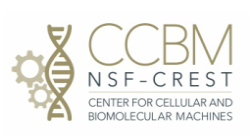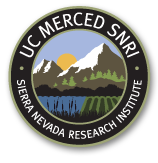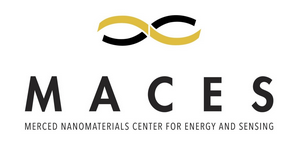 NSF-CREST Center for Cellular and Bimolecular Machines
NSF-CREST Center for Cellular and Bimolecular Machines
We are an interdisciplinary research center focused on functional assemblies of biological and bio-inspired materials. We also host an integrated, interdisciplinary training program for graduate students that emphasizes both physical and biological components with research and training experiences for undergraduate and high school students.
 University of California Advanced Solar Technologies Institute (UC Solar)
University of California Advanced Solar Technologies Institute (UC Solar)
UC Solar faculty, students and postdoctoral researchers are dedicated to designing and developing innovative solar energy generation technologies that are more efficient, more affordable, and easier to integrate. UC Solar is made up of participants from the University of California's Merced, Berkeley, Santa Barbara, Davis, San Diego, Riverside, Irvine, Santa Cruz and Los Angeles campuses, and it is supported by research grants, philanthropic gifts, and corporate sponsor.
 Health Sciences Research Institute at UC Merced
Health Sciences Research Institute at UC Merced
The Health Sciences Research Institute (HSRI) was established in May 2012 as the second Organized Research Unit at UC Merced and is the University's focal point for health and medical research.
 Sierra Nevada Research Institute
Sierra Nevada Research Institute
The San Joaquin Valley and the Sierra Nevada Regions of California are legendary for their vast natural resources, physical and biological diversity, and cultural heritage. These regions lead the nation in agricultural production and in several natural resource and recreation industries. However, rapid population growth, competition for natural resources, air, water and soil pollution, climate change and competing land uses pose serious threats to the sustainability of these regions.
 Center for Information Technology in the Interest of Society (CITRIS)
Center for Information Technology in the Interest of Society (CITRIS)
CITRIS is a research organization, formed in 2001 with the goal of coordinating research between UC Merced, UC Berkeley, UC Davis and UC Santa Cruz. Our focus is on applying new and innovative technologies to address social and environmental issues facing California. To meet this goal, we focus our research on four core initiatives: Energy, Health Care, Intelligent Infrastructure, and Data and Democracy
 UC Water Security and Sustainability Research Initiative
UC Water Security and Sustainability Research Initiative
The UC WATER Security and Sustainability Research Initiative is focused on strategic research to build the knowledge base for better water resources management. We apply innovative science, technology, and implementation strategy to real-world problems of surface and ground water management.
 Merced NAnomaterials Center for Energy and Sensing (MACES)
Merced NAnomaterials Center for Energy and Sensing (MACES)
MACES’ mission is to promote excellence in research and education in the broadly defined area of functional nanomaterials. By fostering innovative and collaborative research programs, the center aims to enable materials with revolutionary new capabilities in energy conversion and sensing.
Our goal is to provide a focal point for the soft matter research community around the world, through education and networking. Soft Matter World includes all areas of soft matter physics, chemistry and materials science, covering everything from liquid crystals, polymers and gels to biomolecular assembly and the interface between hard and soft condensed matter.
 U.S. Department of Energy Joint Genome Institute (DOE JGI)
U.S. Department of Energy Joint Genome Institute (DOE JGI)
The mission of the U.S. Department of Energy Joint Genome Institute (DOE JGI), a DOE Office of Science User Facility operated by Lawrence Berkeley National Laboratory (Berkeley Lab) and part of the Biosciences Area, is to advance genomics in support of the DOE missions related to clean energy generation and environmental characterization and cleanup. The DOE JGI is operated by the University of California for the U.S. Department of Energy and the facility provides integrated high-throughput sequencing, DNA design and synthesis, metabolomics and computational analysis that enable systems-based scientific approaches to these challenges.
 Lawrence Livermore National Laboratory (LLNL)
Lawrence Livermore National Laboratory (LLNL)
Livermore's defining responsibility is ensuring the safety, security and reliability of the nation's nuclear deterrent. Yet LLNL's mission is broader than stockpile stewardship, as dangers ranging from nuclear proliferation and terrorism to energy shortages and climate change threaten national security and global stability. The Laboratory's science and engineering are being applied to achieve breakthroughs for counterterrorism and nonproliferation, defense and intelligence, energy and environmental security.

 Soft Matter World
Soft Matter World